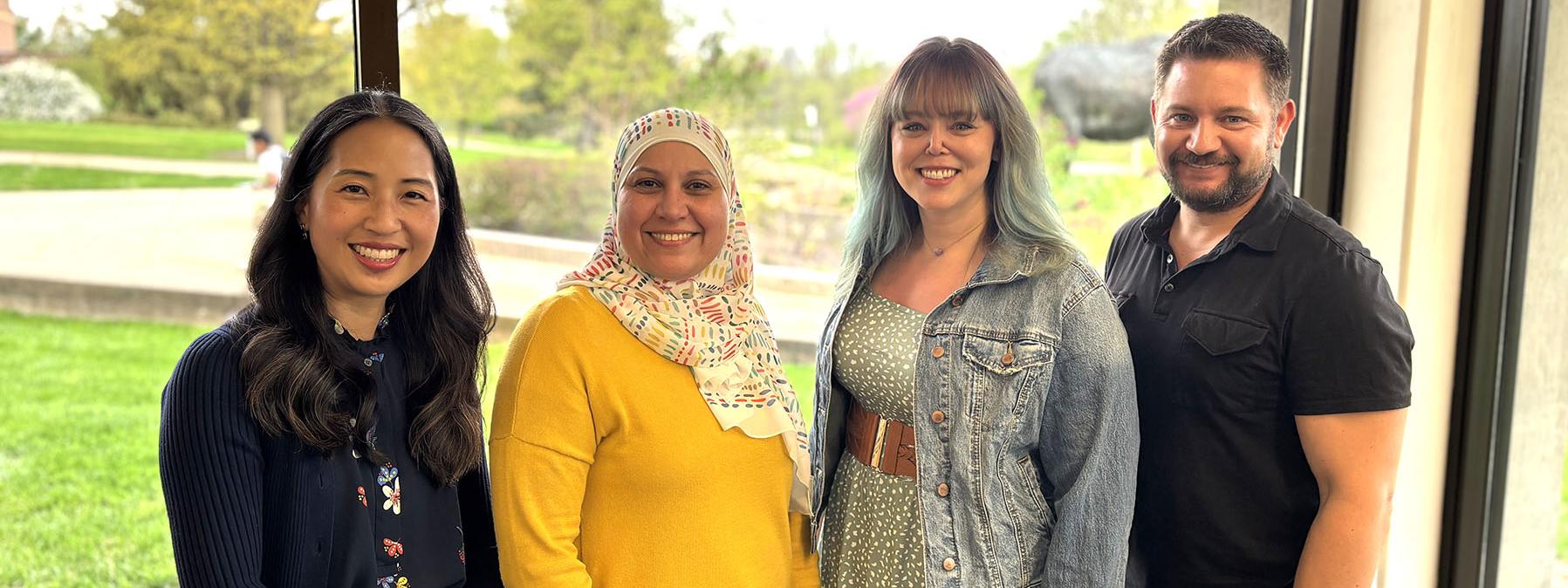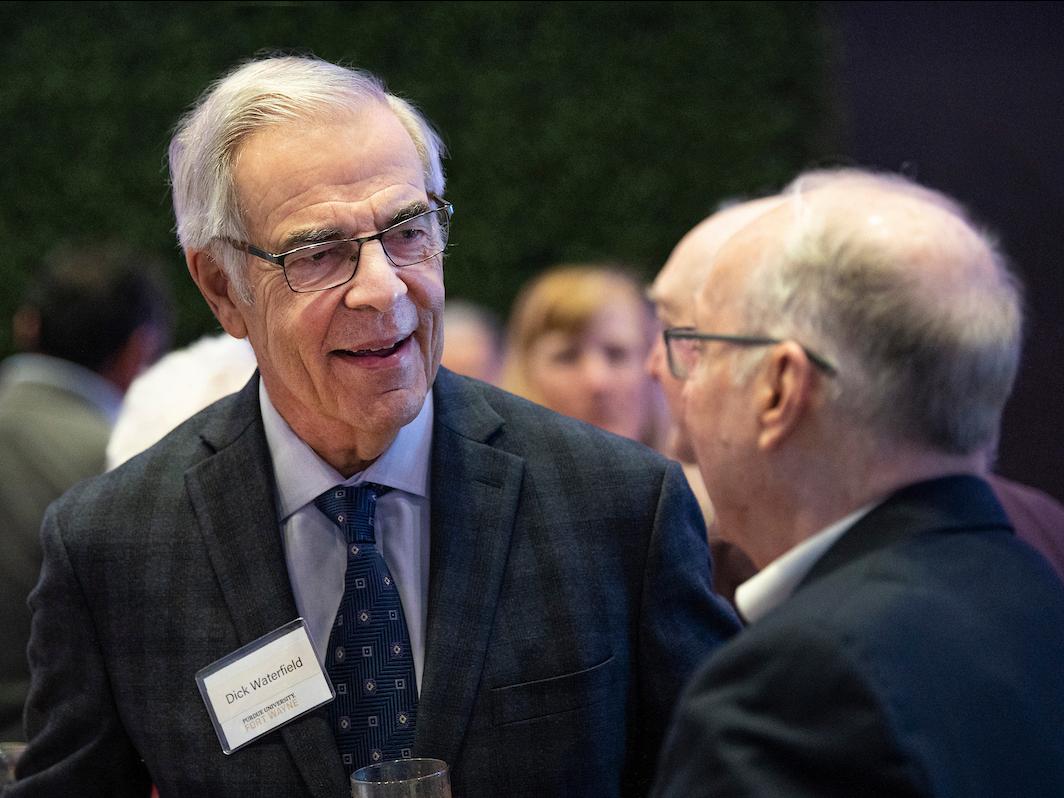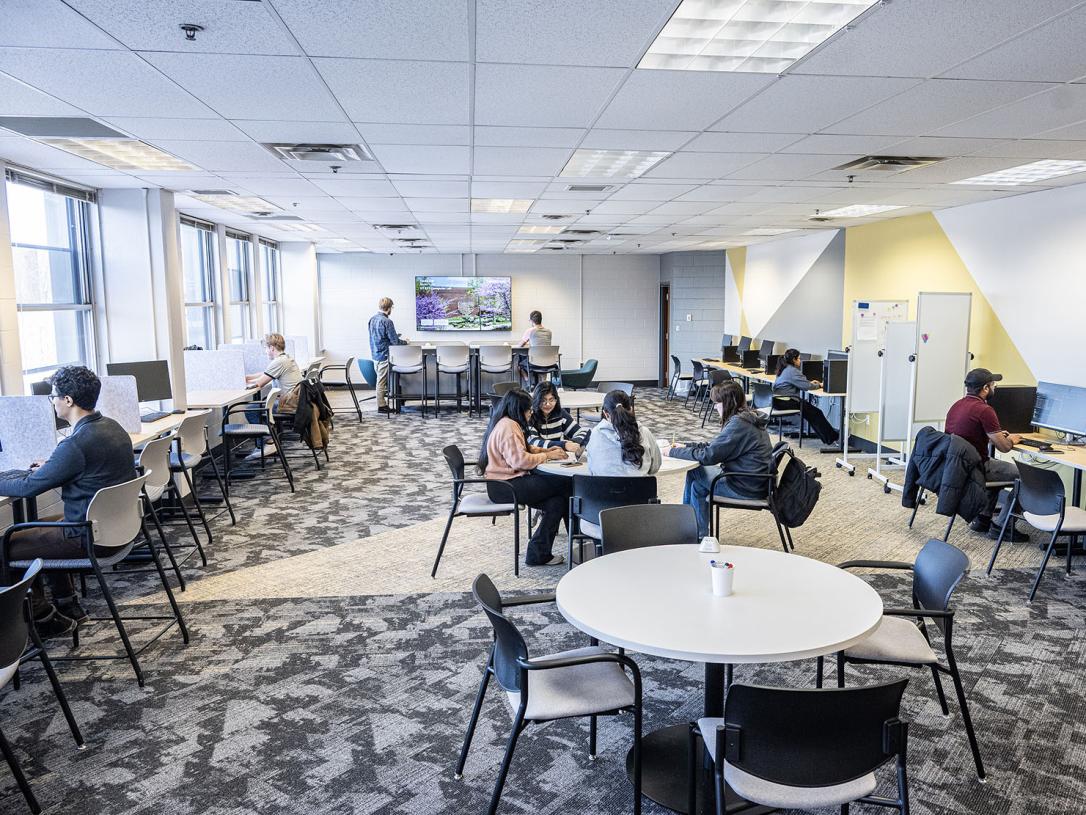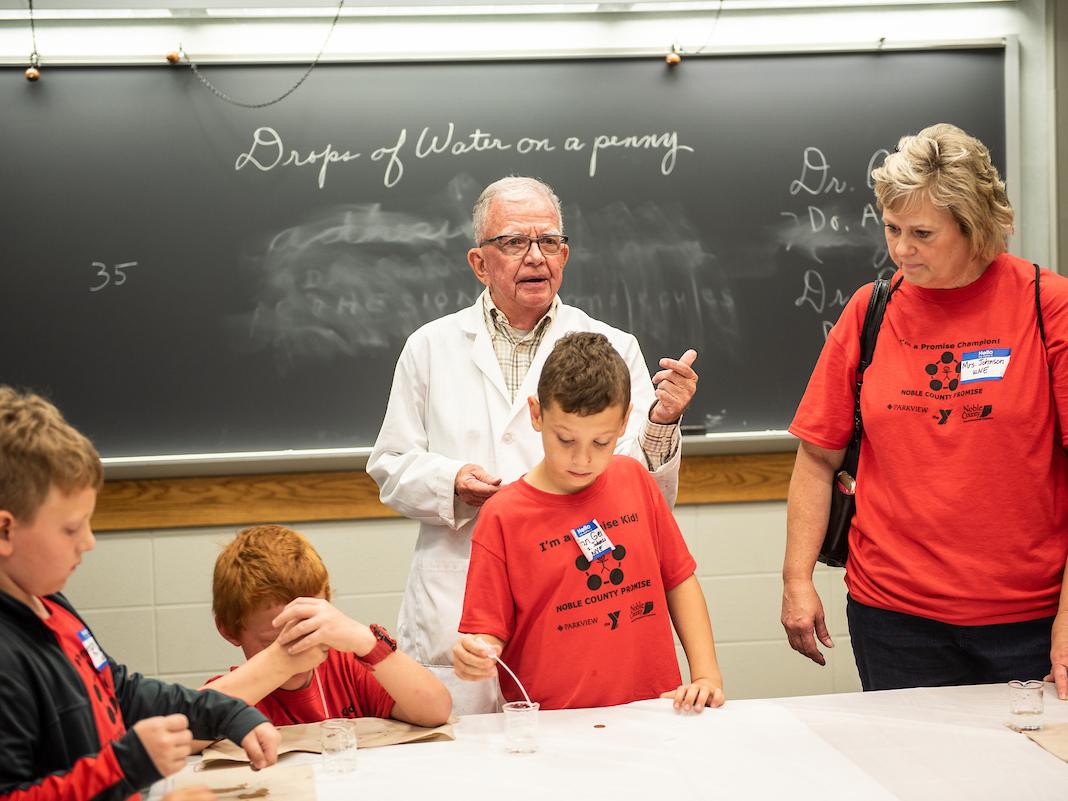
CELT announces its newest faculty fellows
By Blake Sebring
August 28, 2025
The Center for the Enhancement of Learning and Teaching at Purdue University Fort Wayne has named its next round of teaching development fellows to work with the unit’s staff on developing new programs and collaborating with others.
“We have a great degree of respect for the expertise the faculty bring when they work with us,” said Adam Dircksen, CELT’s executive director. “It gives us an opportunity to learn from new perspectives and new experiences.”
The four faculty members selected have all previously utilized CELT’s services or collaborated extensively with its team to help in other programs.
- Suin Roberts, associate professor of German, will work with Rachel Roberts, assistant director of faculty teaching development, to support the peer review program and deliver a teaching certificate aimed at meeting teaching needs specific to international faculty.
- Michael Kirchner, chair of the Department of Organizational Leadership, will team with Kevin Stoller, instructional consultant and designer. They will focus on teaching PFW 101 and building additional programming to support the scholarship of teaching and learning across campus.
- Rebecca Essig, associate professor of first-year engineering, will work with Ramsey and Stoller to lead CELT’s Formative Peer Review fellows.
- Amal Khalifa, assistant professor of computer science, will collaborate with Katie Jia, associate director of educational technologies, to support rapidly changing curriculum needs necessitated by the rise of artificial intelligence in education.
“I think teaching on a smaller campus can be an isolated and isolating experience,” Essig said. “Although I seek out teaching organizations and groups to help combat this, one of the things I am most excited about is a formal position that will expose me to even more of the teaching going on across campus.”
Essig said she loves working with members of the CELT team and spent much of the summer interviewing the Formative Peer Review fellows for their input.
“I am going into my 10th year at PFW and believe there is still so much out there for me to learn about teaching,” Essig said. “I am really excited for the opportunity to learn more from my colleagues, and hopefully they can learn something from me, too.”
In particular, Roberts said she wants to focus on using her experiences from her personal background as a double immigrant—second-generation Korean-German and first-generation Korean-American—to help international faculty adjust.
“This seemed like a natural fit for me, as my biggest passion is teaching and helping others on their teaching journey,” Roberts said. “I would like to make a difference for my colleagues, and I believe that this fellowship gives me an opportunity to do just that while drawing on my research expertise and combining it with my teaching and service interests. Ultimately, I would love to make a lasting difference for the international faculty on this campus.”
Dircksen said 20% of the PFW faculty hail from locations outside of the U.S.
Khalifa may have the most challenging assignment as artificial intelligence grows exponentially throughout society and particularly in higher education. She said her previous experiences keep snowballing into the next opportunity, including this one.
“My strong disciplinary background and direct experience teaching computing and programming courses uniquely position me to contribute valuable insights into the practical challenges of integrating AI into instruction,” Khalifa said. “Additionally, I aim to explore the broader implications of AI on teaching practices and its potential impact on the future job market.”
Khalifa said she will work closely with faculty in the College of Engineering, Technology, and Computer Science to create practical guidelines and examples they can integrate into their syllabi and classroom activities, focusing on implementing AI as a learning assistant rather than a substitute for core skills.
Kirchner has worked extensively in researching how colleges help veterans onboard into campus life, and believes he can use that experience to help new faculty members adjust to PFW. Dircksen said there are 22 new, full-time faculty this semester.
“We have experts all over this campus who can help to contribute to the things we are doing, and can say, `Here’s a way to do that,’” Dircksen said. “The university should be proud of the number of outstanding teachers we have.”




